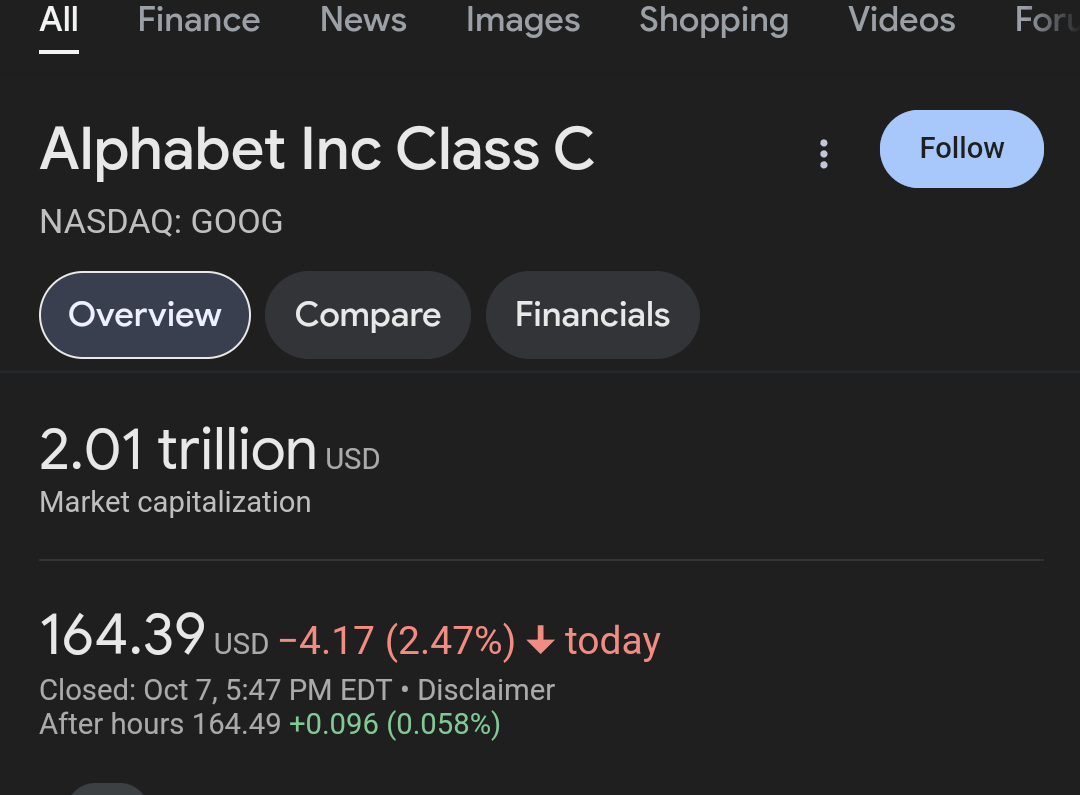Tldr for those who are confused, since Android already does support side loading and even seamless updates for third-party app stores (like Droid-ify, etc), these are mostly legal changes.
Basically Google can’t force Google IAP as the only method of payment in apps anymore, can’t block companies from advertising how to find them on non-Play Store android app stores. So good changes overall.
Also when you download third party apks, on Android, while it’s still relatively easy to do, it does give bit of a scary warning saying security issues are on the user for doing so. This creates the assumption that Play Store is the only secure way to get apps on Android, and the OS gives all sorts of special security exceptions to the Play Store for that. Obviously other secure app stores can exist, so this can be seen as an anti-competitive method since Google is exempt from their own scary apk install message.
COOL, cool…. Hay why was the exact opposite ruled for apple?
Apple produces hardware for their walled garden, whereas Google imposes their terms on third parties. I can’t speak to how this works legally, but thats the main difference as far as I understand.
It’s no longer an excuse for Apple. Since the EU’s ruling they now have to allow third party stores there: https://support.apple.com/en-us/118110 and of course they’ll fight tooth and nail against it here, the infrastructure exists so many of their previous arguments around not doing it are moot
The biggest reason is most likely that the cases had different judges.
This is a wild downplay of this.
The judge is forcing Google to let third party app stores sell and distribute all the apps in the Google Play Store. That s massive.
You have it backwards. They’re putting third party stores on the Play store.
Google will have to distribute rival third-party app stores within Google Play, and it must give rival third-party app stores access to the full catalog of Google Play apps, unless developers opt out individually.
It’s both, and honestly a pretty genius move on the judge’s part. “Oh you keep finding ways of leveraging this gate to uncompetitively make money, well how about I just mandate that you give access to both sides of the gate to everyone else.”
That’s pretty bullshit, honestly. Being forced to provide the bandwidth to hurt its own business. All while Apple gets to keep screwing people.
Mostly fair, but I’ll push back on the security issue.
Side loading an apk is extremely dangerous, and an easy attack vector.
While there are plenty of malicious apps that make it on the Google store, they do attempt to do some automated and even manual curation. This is fact.
I think it’s wholly appropriate to warn the user that they’re bypassing that standard, if imperfect, Google security coverage. And granting extensive app permissions is done at your own risk.
3rd party app stores may do their own security curation as well, and it’s up to them to communicate that and educate their users on why they still get the Google warning.
If malicious apps can make it way to Play Store, this means it is not 100% safe and make it subject to the same security warnings is reasonable, and not give it exceptions and makes it like the only safe option.
You could make exactly the same argument for installing software onto your computer, it is an attack vector and going through microsoft’s store or your distro’s repos gives a level of curation. So should desktop users be prevented/scared off from installing what software they want because it’s a security issue?
You mean that warning that they all give when you’re installing a 3rd party app? And the warning is more aggressive when it’s an unregistered (licensed?) App.
They all do it. Windows, MacOS for sure. I don’t remember seeing it on Linux, but I’m usually not installing sketchy binaries on Linux.
But third party stores are already allowed and supported on Android?
“Allowed and supported” is something different then “its possible”. The article mentions some points that seemingly haven’t been “supported” in the past:
- Stop requiring Google Play Billing for apps distributed on the Google Play Store (the jury found that Google had illegally tied its payment system to its app store)
- Let Android developers tell users about other ways to pay from within the Play Store
- Let Android developers link to ways to download their apps outside of the Play Store
- Let Android developers set their own prices for apps irrespective of Play Billing
Google also can’t:
- Share app revenue “with any person or entity that distributes Android apps” or plans to launch an app store or app platform
- Offer developers money or perks to launch their apps on the Play Store exclusively or first
- Offer developers money or perks not to launch their apps on rival stores
- Offer device makers or carriers money or perks to preinstall the Play Store
- Offer device makers or carriers money or perks not to preinstall rival stores
Thanks Mr. Epic Judge
WTF, they can rule Google can’t offer perks for exclusivity, but epic does that shit with it’s game store.
Because Google holds a monopoly position and Epic doesn’t.
That said, the irony didn’t escape me either.
deleted by creator
Play Store
This is all about the Play Store though, it has literally nothing to do with competing stores. I use F-Droid today and there are no restrictions from Google about what apps I can install through that store, whether I can pay for apps through that store (some apps have donation buttons inside), etc. There’s nothing stopping Epic from distributing their own app store like F-Droid does even before this decision.
So I really don’t understand what “cracking open Android” means here. All that seems to be happening is that Google is restricted from certain actions within its own store, which is absolutely fine by me (I don’t use the Play Store), but I don’t see any actual changes to Android or third-party app stores.
The closest is this one:
Offer device makers or carriers money or perks not to preinstall rival stores
But Samsung already has its own app store, no? So is there any actual evidence that this was ever a thing?
They should place these restrictions on Apple, not Google, because Apple is the one doing all of this nonsense. Yeah, Google should be reigned in a bit, but they’re really not the problem here.
Yes but only through sideloading, this order requires Google to allow third-party app stores to be distributed from within Play Store, i.e. you can search for “F-Droid” from directly within Play Store and install it.
Which also comes with a bit of a positive reputation to truly allow a competitor to rise. Before, non-technical people (read:the average person) saw sideloading as dangerous because of “viruses”, which led to low uptake of Epics own store (Which they did try to distribute through sideloading)
Now if an average person sees F-Droid or other app store in the play store they’re automatically going to think “It’s in the Play Store and vetted by Google so it MUST be safe to check out”
How can Google vet an app store without vetting everything it could serve?
this order requires Google to allow third-party app stores to be distributed from within Play Store
Honestly, I don’t really agree with that. I don’t think Google should be forced to allow any app onto its store, provided there’s an alternative way users can get that app.
I installed F-Droid from its website and I’ve installed other apps directly from their respective websites, just like I normally would on a PC. I don’t see any reason for Microsoft, for example, to allow competing stores to be distributed in their Windows Store (or whatever they call it now).
The whole concept of “sideloading” is just a marketing gimmick for doing the same thing people normally do on other devices. It’s stupid and unfortunately really effective, so maybe they should get fined for that as well. But I don’t think that means Google should be forced to accept any apps that it doesn’t want to distribute.
@sugar_in_your_tea @cm0002 That’s the thing: Microsoft Store allows you to download Epic Games Store, Battle.net and Ubisoft Connect from their store. I don’t see anything bad with being able to download F-Droid from Google Play, as long as there’s a way to protect it from impersonators or malicious apps.
Can confirm, I just pulled up Epic Games Store from within the MS Store lol
And on top of that, this isn’t some startup who has to depend on every dollar, even if you’re right @sugar_in_your_tea@sh.itjust.works this is fucking Google with a 2 TRILLION DOLLAR market cap they can lose some revenue to make room for some competition even if it’s a tad unfair.

So they will have the same judgement for apple right?? And not the same bullshit excuse that since it’s even more locked down it’s okay for them to do it?
wording “crack open” doesn’t seems appropriate
next you’re going to tell me ‘side loading’ and ‘backdoor access’ sound naughty
Maybe it was phrased like that for this very reason.
That means get rid of that fucking anti-sidoading shit they’re flirting with.
My initial reading of the reporting on this ruling suggests it won’t do that. App developers can opt out of most of the provisions, but Google may not pressure them to do so.
They need to do this on iOS Fr Fr
If that makes it even easier to get F-Droid installed for the masses, I’m all for it.
There are many things I like about F-Droid, but its UI is awful for a lay person
droid-ify :)
I installed it, it would kick off updates for hours every day for 3 days straight, and I uninstalled it. What is so good about it for you? I get not getting the apps through advertised crap, but I really dont think this will effect most users at all.
XDA-CHADS, TODAY WE WILL REMIND THEM.
Cool. Do apple next!
It mentions decoupling the payment system from the store.
Is this really a good thing? It’ll lead to Google relying even more on ad revenue.
if Google wants paid, they can make a compelling and competitive product











